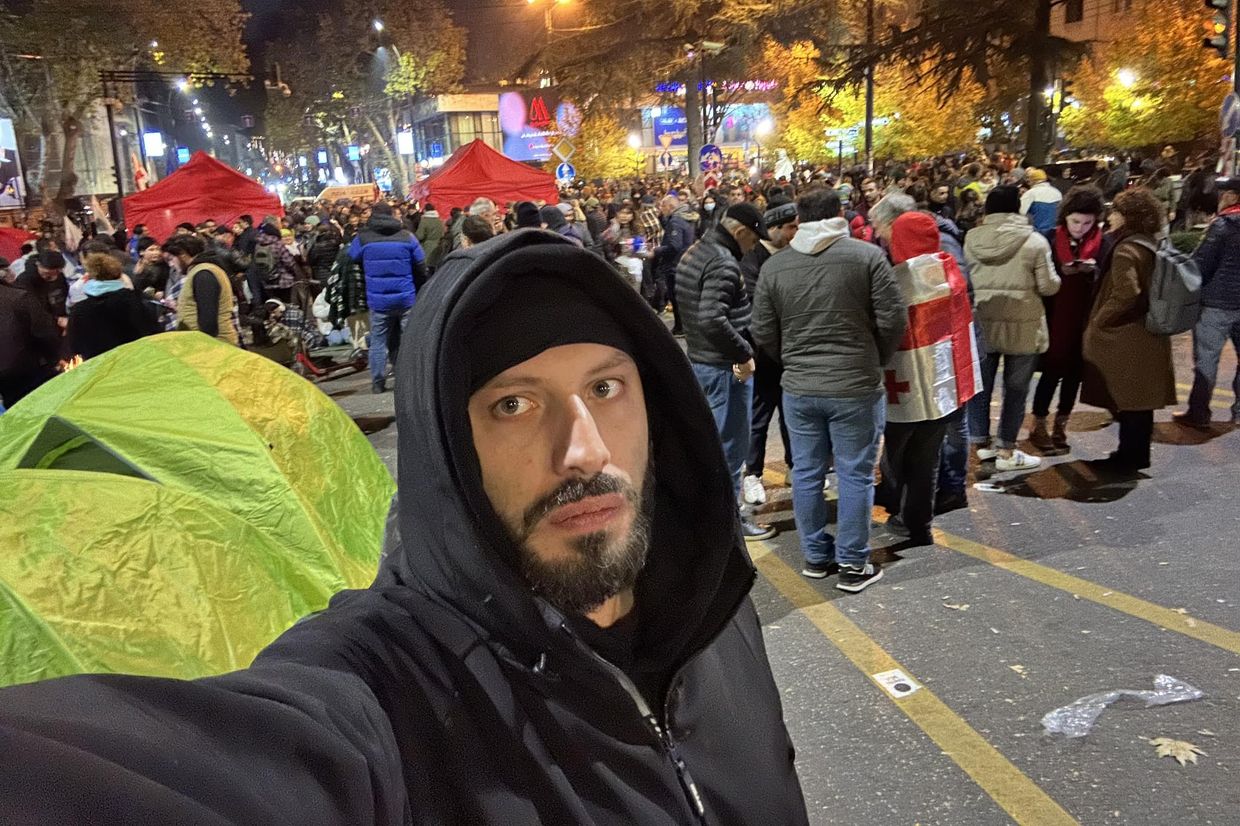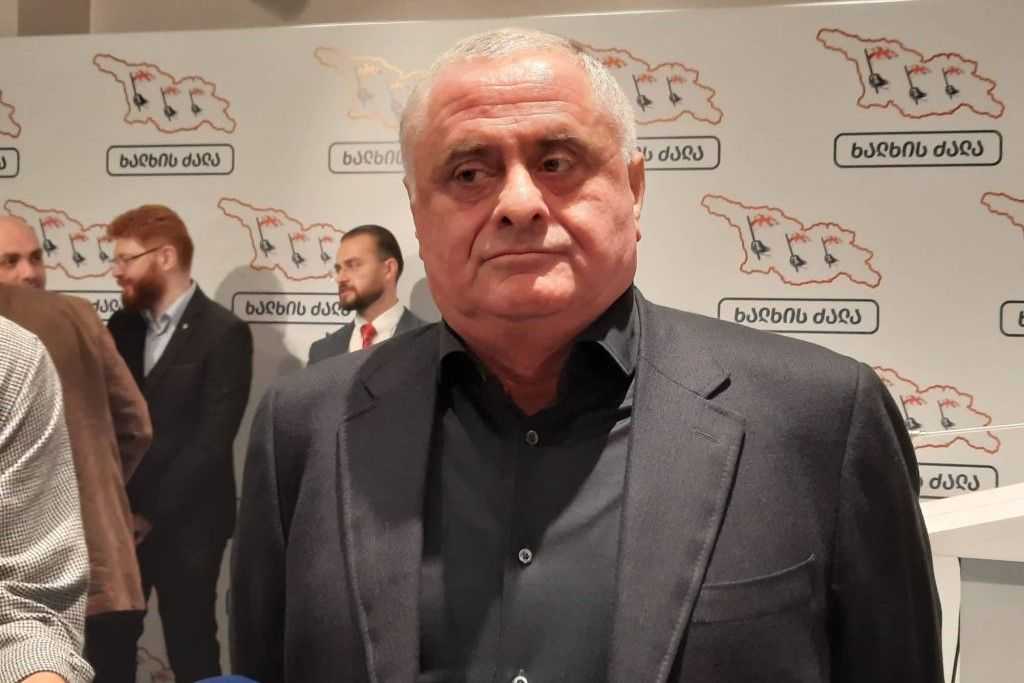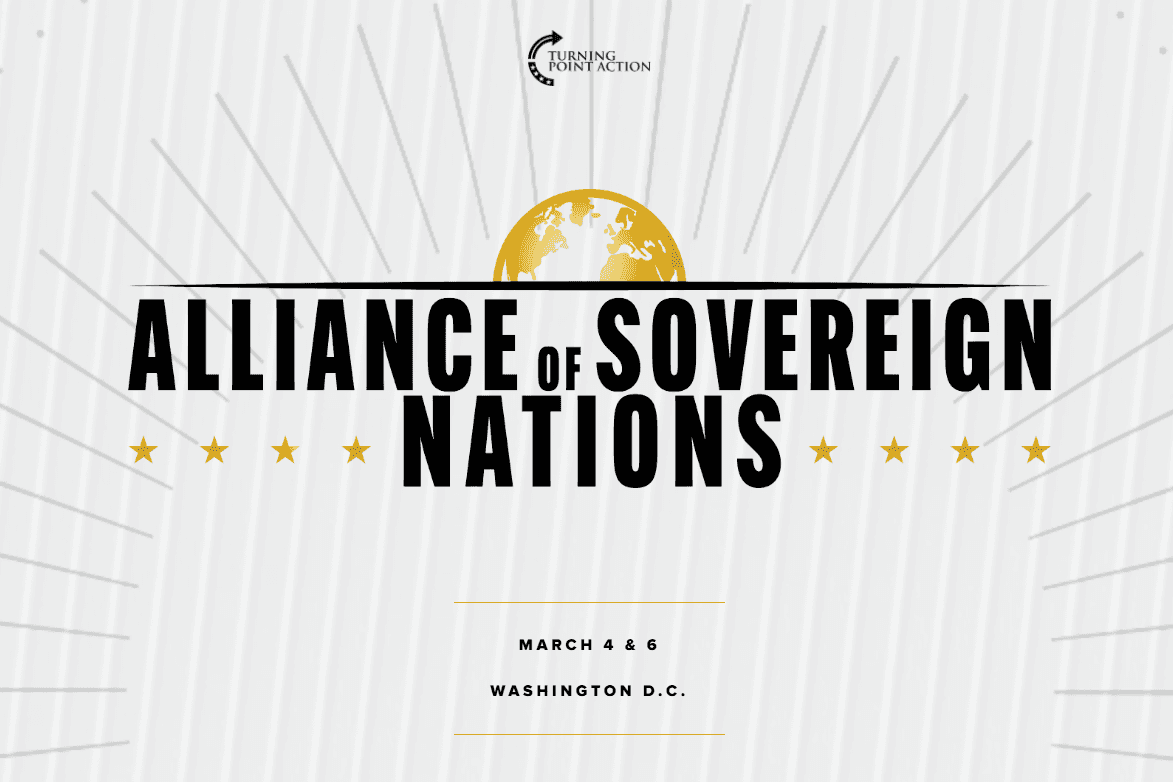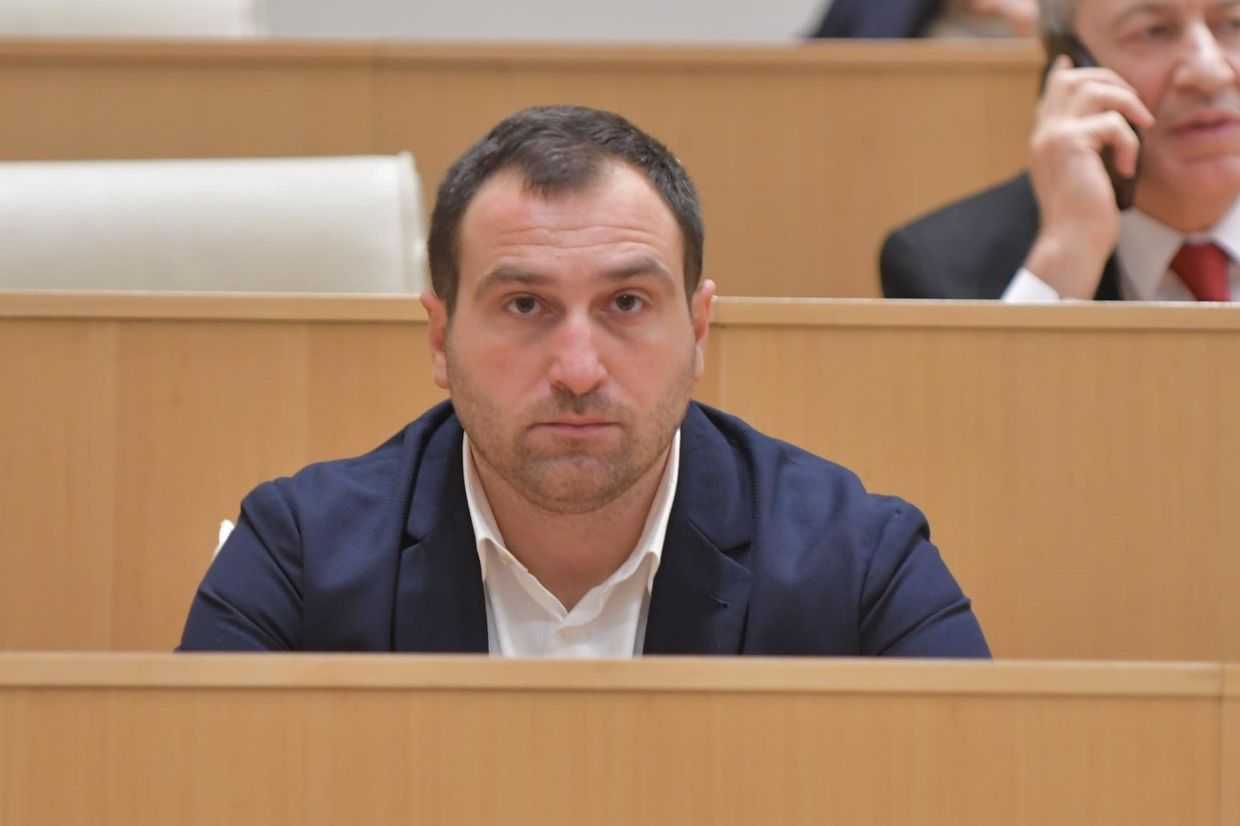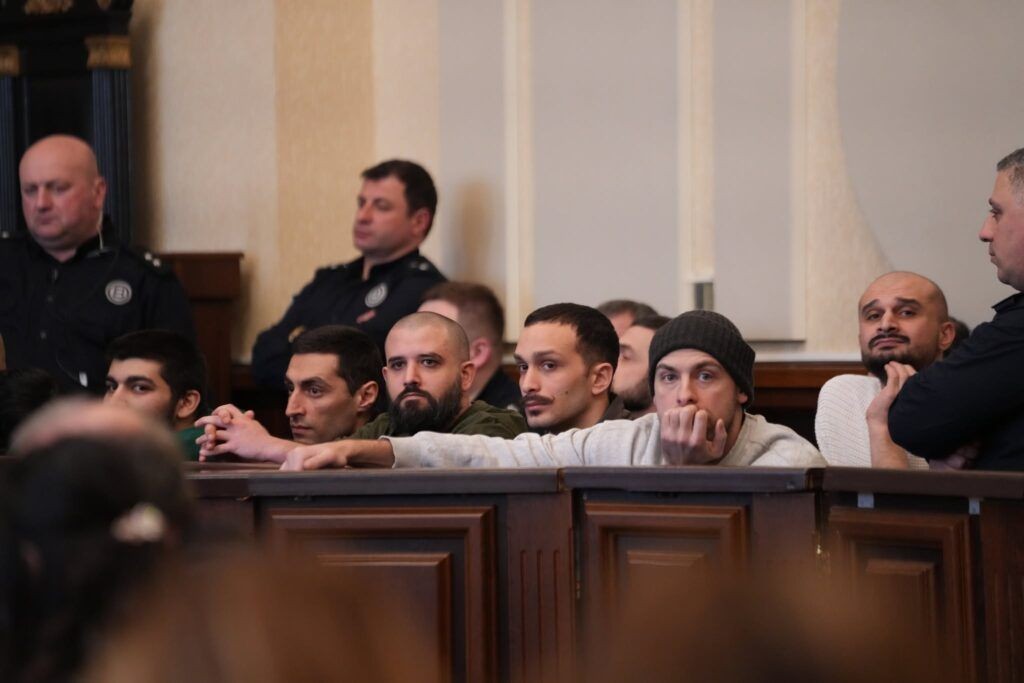
Tbilisi City Court has announced verdicts for 11 more people detained under violence-related charges during Georgia’s ongoing anti-government protests. Their charges were eventually reclassified, resulting in prison terms of two years.
Judge Nino Galustashvili announced the verdicts on Wednesday. The cases of all eleven defendants had been consolidated into a single trial, and their hearings were conducted together over the past several months.
The verdict was awaited in the courthouse yard by the families, friends, and supporters of the detainees.
The investigation accused the detainees — 21-year-old Luka Jabua, 27-year-olds Rezo Kiknadze, Ruslan Sivakov, Valeri Tetrashvili and Sergei Kukharchuk, 28-year-old Onise Tskhadadze, 29-year-old Andro Chichinadze, 30-year-old Irakli Kerashvili, 34-year-old Guram Mirtskhulava, 50-year-old Jano Archaia, and 54-year-old Giorgi Terishvili — of participating in group violence, which carries a penalty of up to six years in prison.
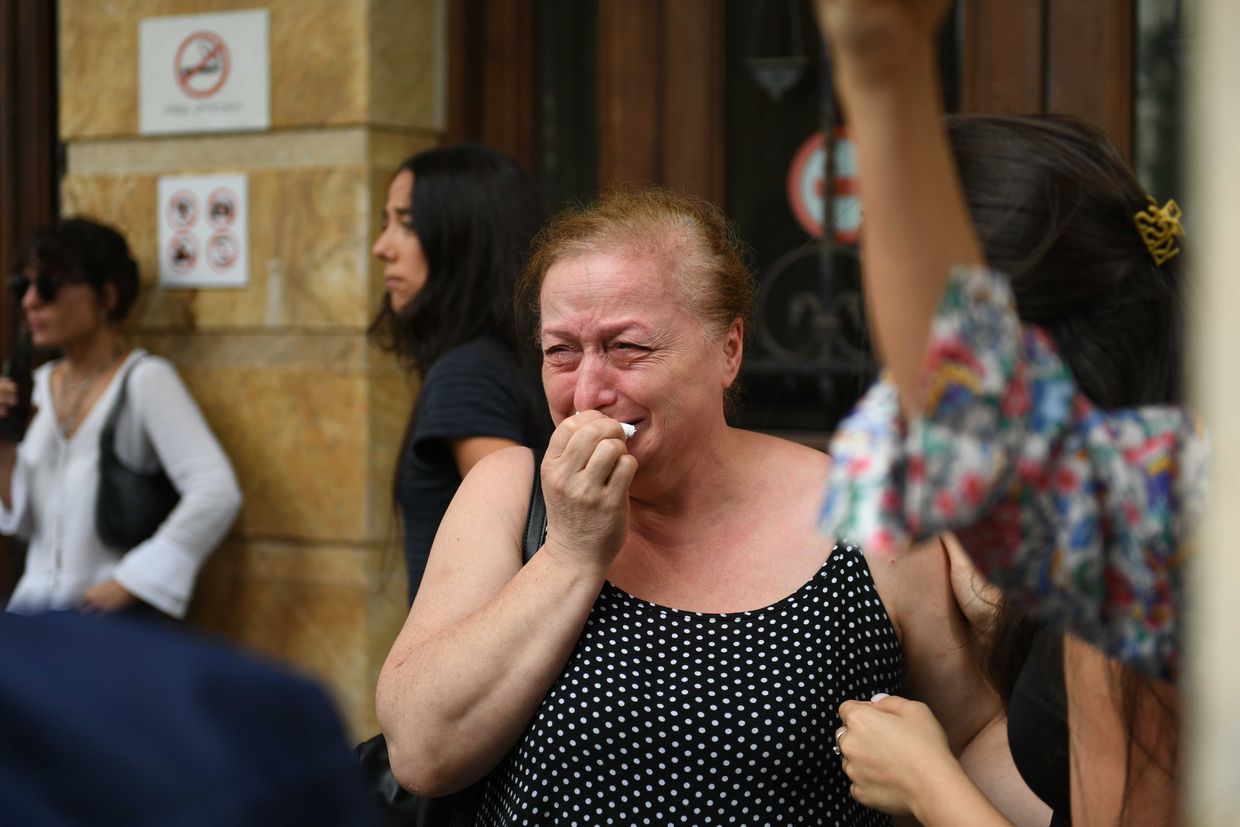
Ultimately, Judge Galustashvili reclassified the cases under a different charge, involving the organisation of group actions that violate public order or active participation in such actions.
As a result, all defendants received two-year sentences.
Expectations that the case would be reclassified under this article arose on Tuesday, when the court changed the charges for eight other detainees accused of group violence to a similar article.
Both cases, as well as many other criminal proceedings initiated during the protests, have been widely perceived by government critics as fabricated and politically motivated.
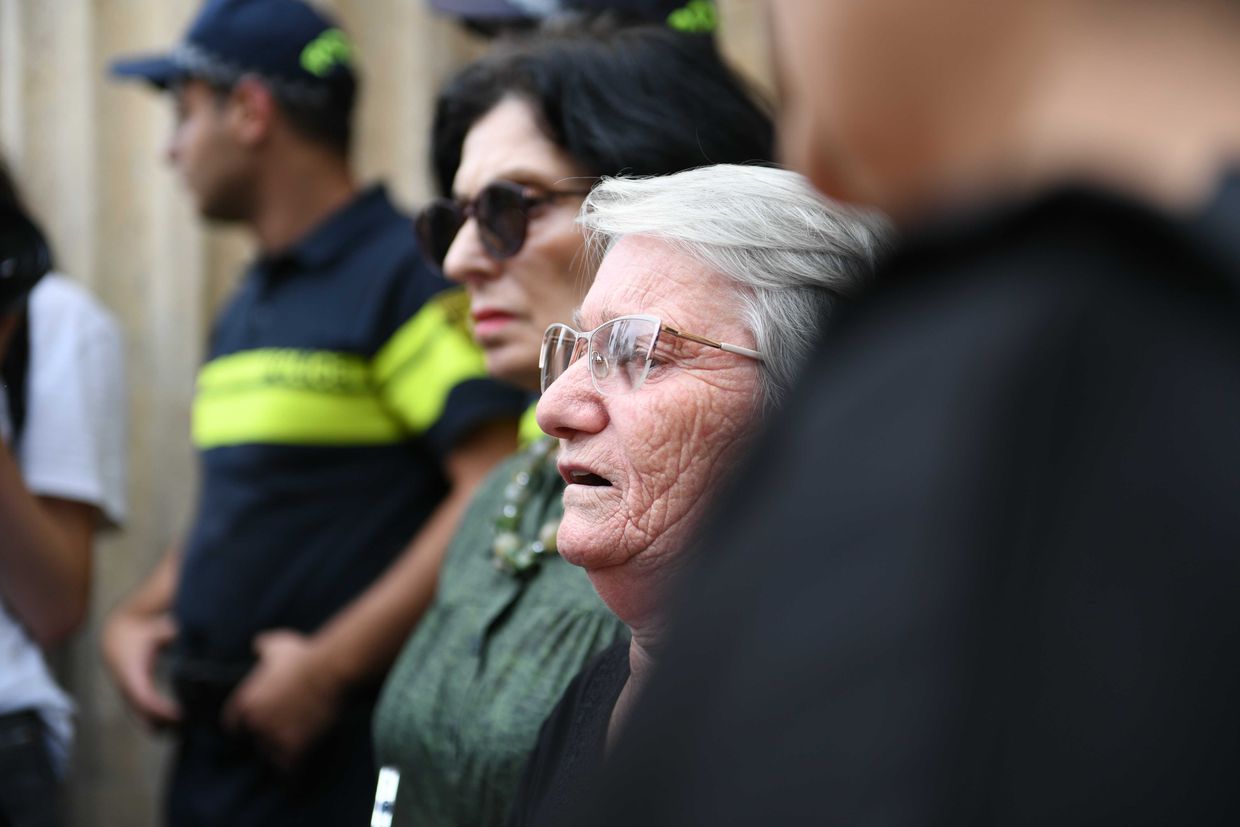
‘I am proud, truly proud, that I raised two heroic sons!’ Marina Terishvili said after the verdict. One of her sons, Mamuka, was killed at a demonstration in 1992, and her other son, Giorgi, was sentenced on Wednesday.
‘I am proud to have such children, [but] they [the government representatives] will never raise children like this [...] I will walk proudly down the streets’, she added.
All 11 individuals, as well as eight others, were detained by police during protests that began on 28 November 2024, following the ruling Georgian Dream party’s suspension of Georgia’s EU membership bid. The first phase of demonstrations saw heavy clashes and brutal police violence against protesters and journalists.
Hundreds of people have been detained, with criminal cases launched in over 50 instances. Several protesters have already been convicted and sentenced to years in prison.
Like the other detainees, the 11 people sentenced on Wednesday spent the entire pre-verdict time in prison.
Family members of detainees have waged a campaign that included permanent protests demanding their release and the distribution of newspapers across the country publishing letters from the imprisoned protesters.
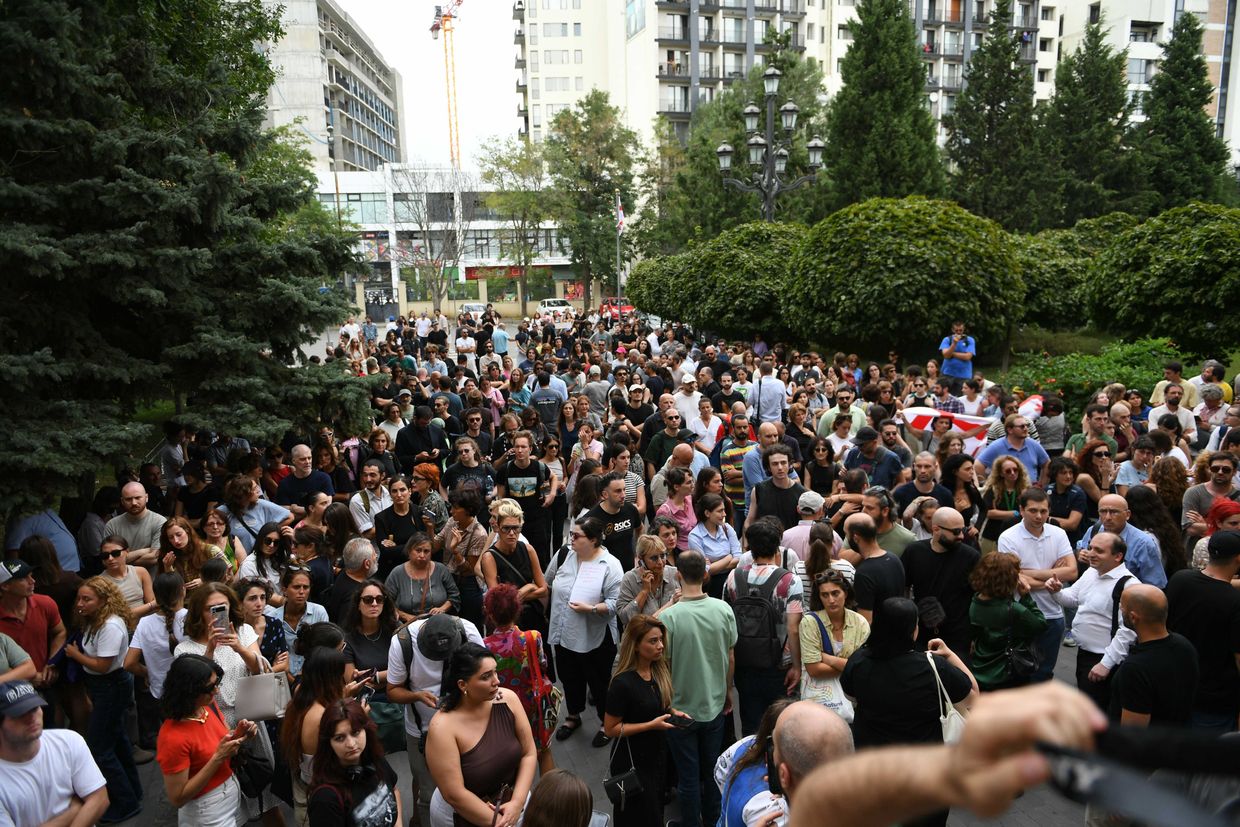
What were the charges?
Among the prosecution’s evidence against the 11 protesters were videos recorded at the demonstrations and testimonies from police officers recognised as victims, along with some other materials.
Over the past months, the prosecution argued that the defendants acted as a group under the instructions of three individuals — Zviad Tsetskhladze, Vepkhia Kasradze, and Vasil Kadzelashvili — who were among the eight people sentenced on Tuesday.
The investigation claimed that the defendants threw various objects and fireworks during the protests, that their actions were directed against police officers, and that these actions resulted in ‘property damage and bodily harm’.
During the court hearings, the prosecution did not address police violence against protesters — including reports of beatings amounting to torture, verbal abuse, humiliation, rape threats, and robbery — which took place during the same period under investigation.
In response, the detainees’ lawyers focused on the same factors they had repeatedly raised in the case of the eight others. Specifically, the defence argued that the prosecution’s evidence failed to establish a key element necessary to prove group violence — that the detainees had any prior connection with one another or even knew each other before their detention.
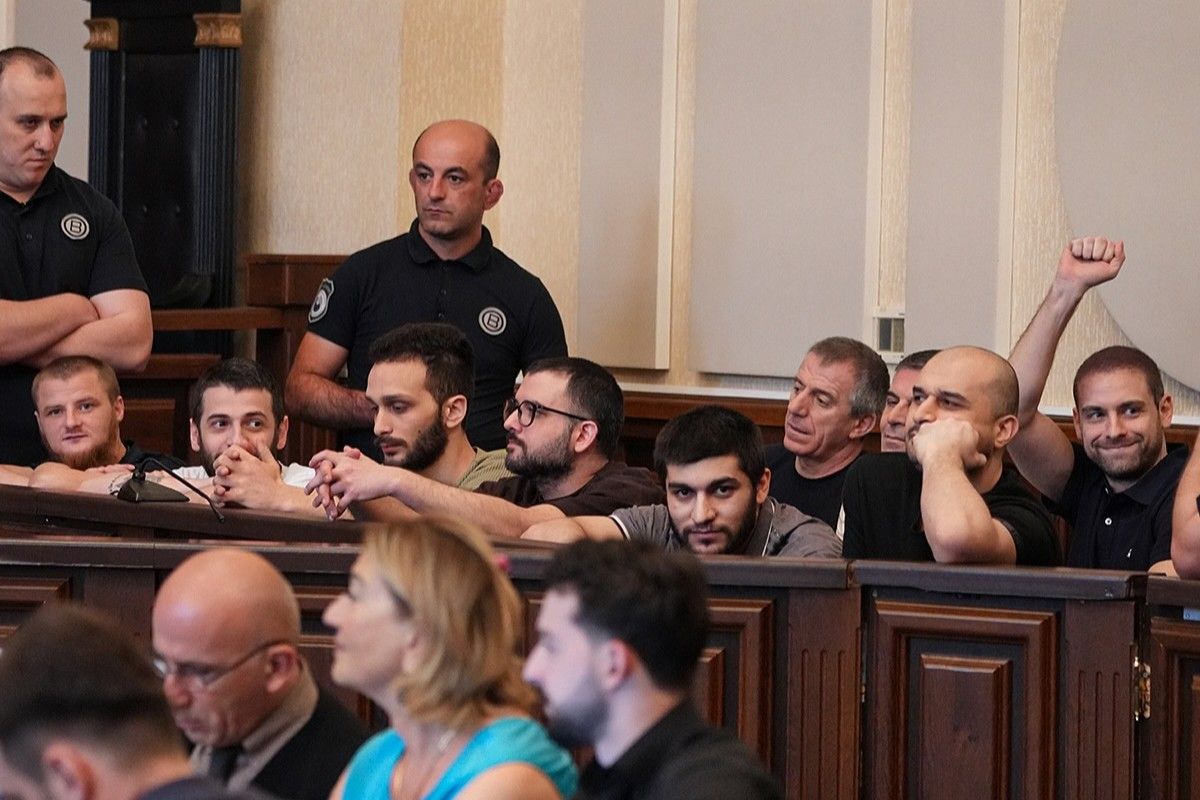
According to the lawyers, it was also not established that the 11 detainees were acting on anyone’s orders, nor that any specific action by any of them caused injury to a particular police officer.
RFE/RL, which closely monitored the trials, reported that none of the police officers brought to court by the prosecution identified any of the defendants as their assailant.
‘All of them repeated, word for word, the same line — that it was dark, and therefore they could not see whose thrown stone or firework had injured them’.
‘The video evidence only shows the act of throwing; it does not show where the thrown “objects” landed or whether they actually hit police officers’, RFE/RL wrote.
Allegations of police abuse of power, which appear in the cases of many protesters detained during the demonstrations, were also present in this case.
One of the defendants, Rezo Kiknadze, said in his closing statement that police threatened to sodomise him and bury him alive. Kiknadze said he was under pressure to write that he had acted on the instructions of opposition politicians.
According to local media, before his detention on Rustaveli Avenue, another defendant, Onise Tskhadadze, as well as his brother, were beaten at the protest site.
The detainees’ lawyers, like other critics, described the case as politically motivated and as an attempt to punish protesters for expressing dissent against the government.
Closing statements
Before the verdict was announced, the detained protesters exercised their right to a closing statement.
Tetrashvili once again declared his innocence and addressed the prosecutors, expressing hope that he would see them again in the courtroom, but with their ‘roles reversed’ — hinting at his wish for state officials who abuse power to be held accountable in the future.
‘You have proved that you are incompetent, unable to investigate real crimes. We are the scapegoats […] your actions are disgusting. You put citizens of our country in a situation where we have to leave and prove [our] truth elsewhere. You are a disgraceful government’, he said, as quoted by Publika.
Another defendant Tskhadadze, whose father passed away during his detention, addressed Judge Galustashvili:
‘This court is no different from a Soviet court. The only difference is in the laws. If executions were carried out today, you would surely condemn people to death, because the judges serve not justice, but the specific interests of specific politicians’, he said.
Chichinadze, who also delivered a closing statement, addressed the prosecutors and a judge:
‘I can tell you that I forgive you for what you have done to me over these nine months […] But this forgiveness comes with a request […] Do not take on cases where you will participate in sending such people to prison’.
Tskhadadze continued with the same sentiment and added:
‘I forgive you too, but what you are doing to the country — [there is] no forgiveness for that’.
